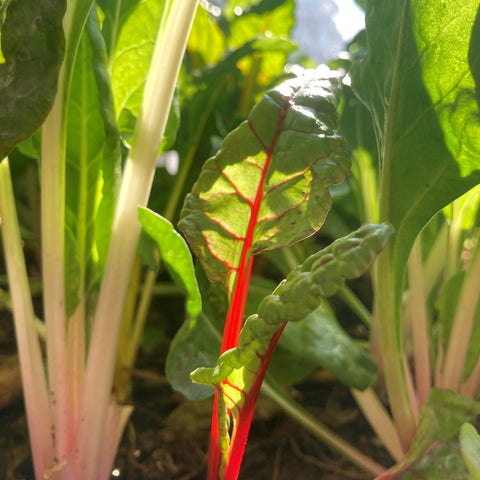5 bad environmental impacts of the global food industry we can avoid by growing our own vegetables

We completely rely on the global food industry to keep us fed and healthy. However, there are a number of dirty aspects to the industry which we can avoid by growing vegetables at home.
Here’s 5 ways growing our own vegetables can help the environment:
-
No plastic packaging on vegetables
The amount of unnecessary plastic packaging on our vegetables is mind-boggling - according to the Environmental Investigation Agency and Greenpeace UK, leading UK supermarkets produce more than 1.2 billion plastic bags for fruit and veg each year!
Unfortunately, only 1/3 of fruit and veg packaging gets recycled. Lots of our waste plastic ends up in our rivers and oceans, which could have more plastic than fish by 2050!
At Sprout, the only plastic we use is the waste plastic which is recycled to make our pots.
-
No food waste
In UK we waste a staggering 10 million tonnes of food each year – more than any other European country.
1/3 of this waste is seen in industry – we’ve all heard about how loads of vegetables are wasted as they are too wonky to be sold in supermarkets.
2/3 of this waste is actually by us, the consumers. 13% of all the food we buy ends up in the bin – that amounted to £13.5 billion wasted in 2015!
By growing your own vegetables, you can help on both fronts. Wonky veg won’t get wasted, and you can harvest only what you need, leaving the rest growing for another day!
-
No food miles
Lettuce from Spain, tomatoes from Morocco, french beans from Kenya… in the UK we import nearly half of all our fruit and veg. When it gets to the UK, transporting it on lorries to supermarkets also contributes significantly to emissions and congestion – 25% of all heavy goods traffic is moving food!
In all, our food-mile footprint is ~19 million tonnes of CO2 each year. Equivalent of 5.5million cars on the roads.
Some vegetables are best grown abroad – for example avocados – but much of what we import could be grown on your windowsill, patio or balcony!
-
No industrial farming
The agriculture industry contributes to ~9% of UK emissions. Things like the manufacturing and use of chemical fertilisers, fuel for farm machinery and the overuse and depletion of soils all contribute to this.
By using small spaces in cities to grow vegetables, we can significantly cut down the impact our food has on the environment. What’s more, everything we supply with Sprout has been consciously chosen to minimise any small impact we may have – for example organic seeds and fertiliser, soil association certified compost.
-
No herbicides or pesticides
Herbicides and pesticides – toxic chemicals designed to boost crop yields by targeting a certain pest or weed – have become a real problem.
Their overuse has meant that they can now be found everywhere; in our soils, waterways and even in our food chain. 64% of farmland is now considered at risk of pesticide pollution with potential long-term impacts of human health.
